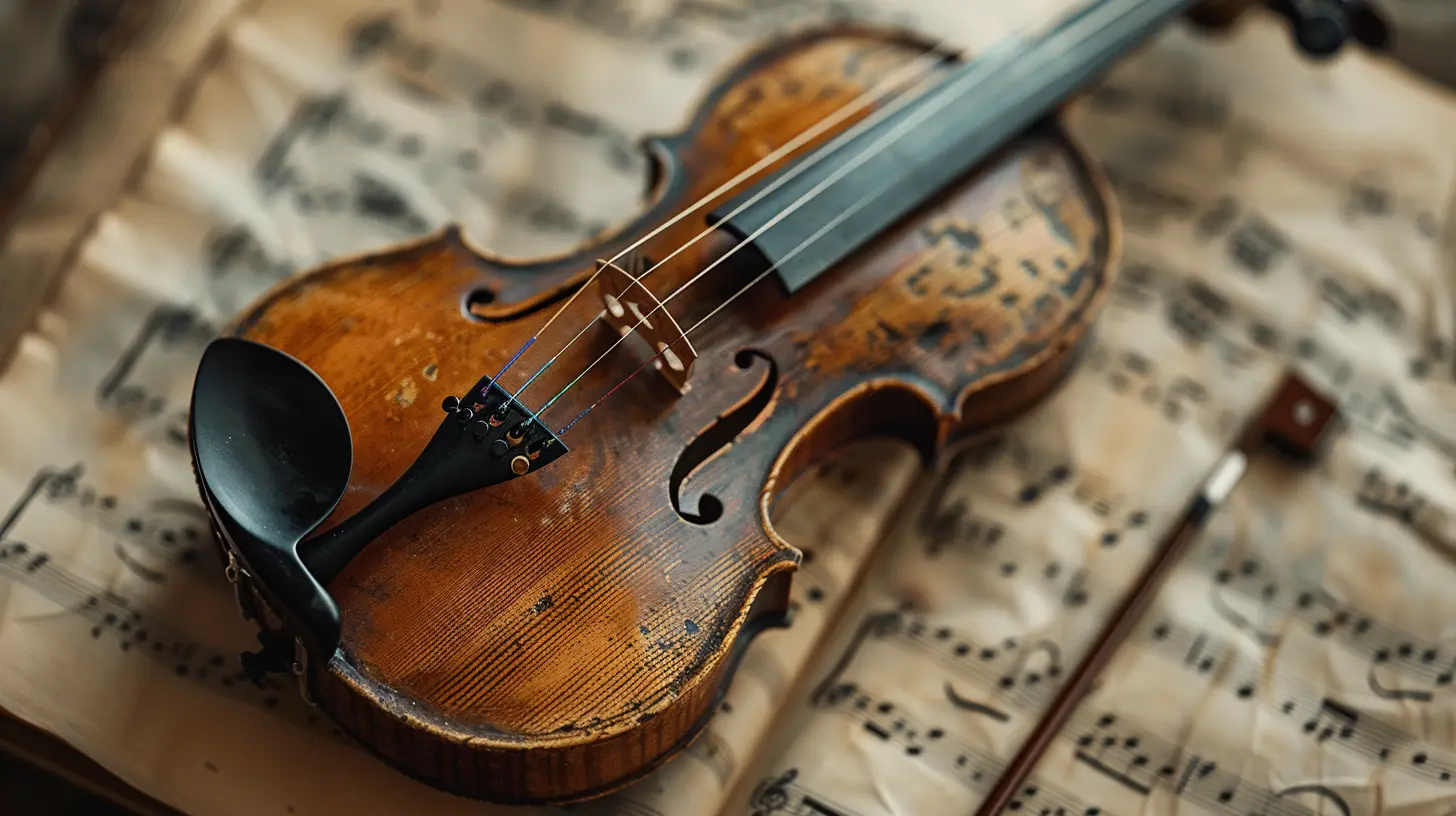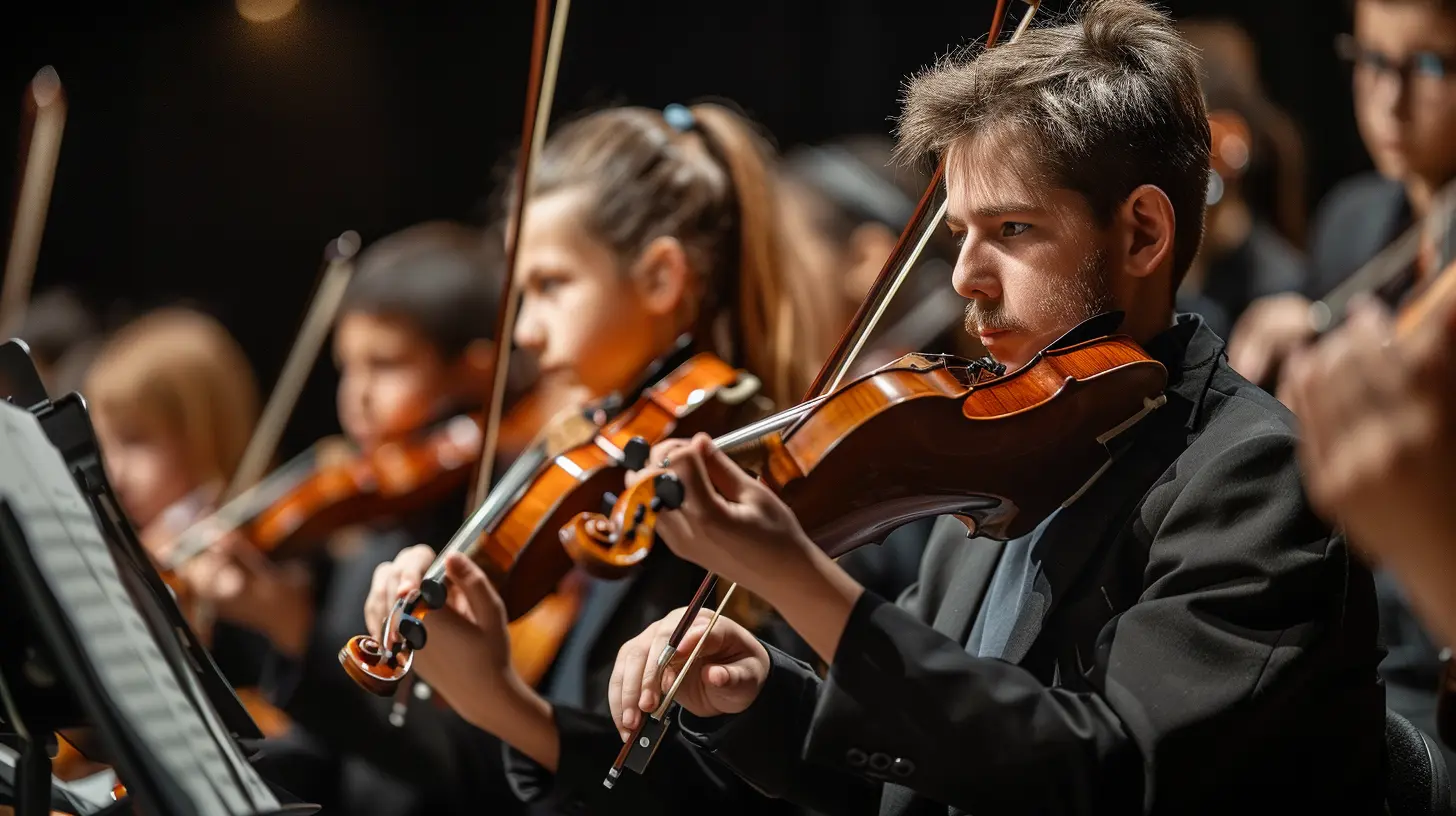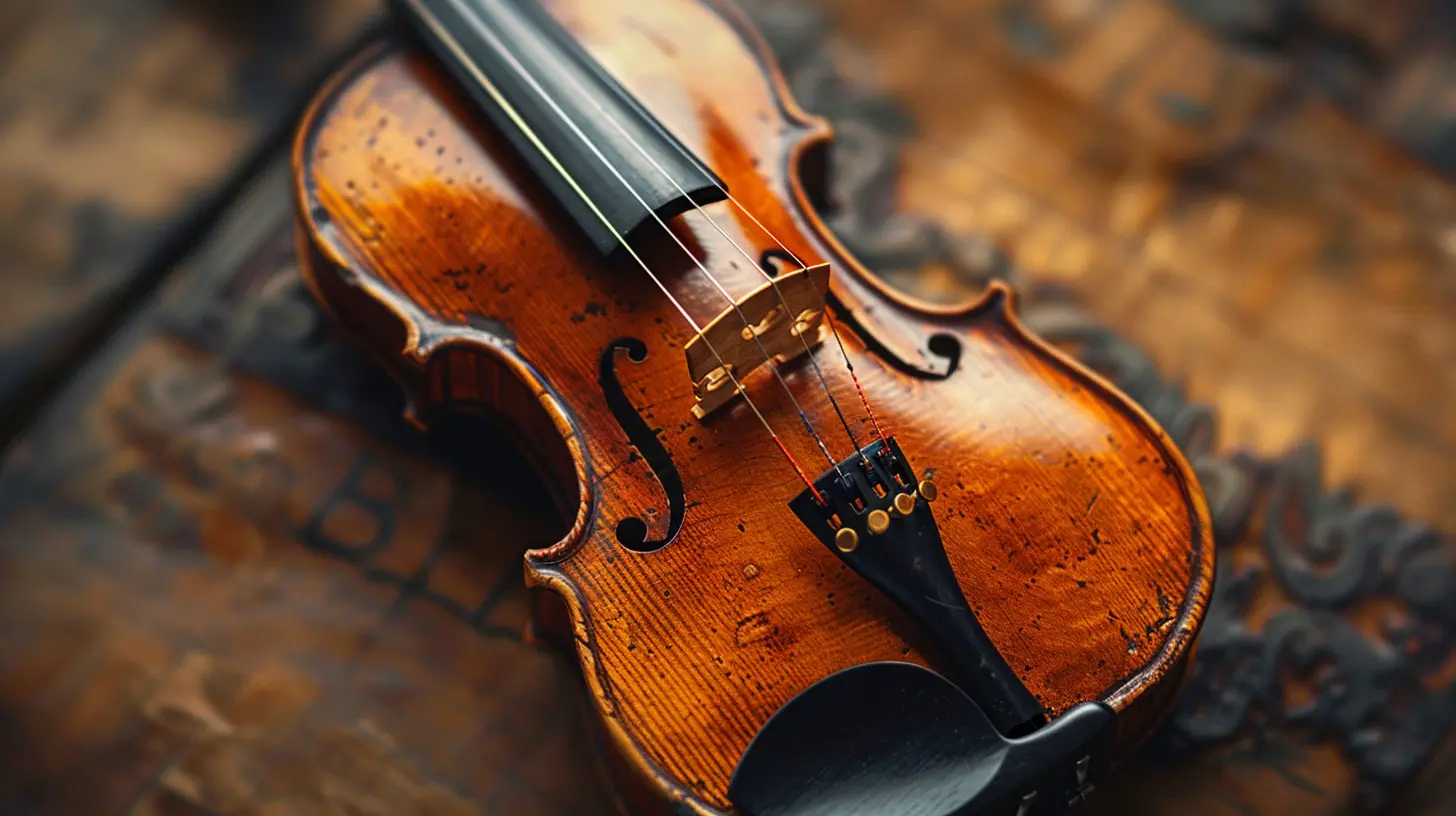20 April 2025
Music has been an integral part of human civilization for centuries. From lullabies sung to infants to symphonies performed in grand concert halls, music has a profound effect on our brains and emotions. But beyond entertainment, did you know that classical music has a significant influence on modern education?
Many studies suggest that listening to and learning classical music can improve cognitive development, boost creativity, and enhance overall academic performance. But how exactly does this happen? And why should educators consider integrating classical music into their teaching strategies? Let’s dive in.

The Science Behind Music and Learning
The relationship between music and learning has intrigued scientists for years. One of the most well-known theories is the “Mozart Effect.” This idea suggests that listening to classical music, particularly the works of Mozart, can temporarily boost intelligence, especially in spatial reasoning tasks.Even though the Mozart Effect has been debated, numerous studies have confirmed that classical music enhances brain function. How? It activates multiple areas of the brain, including those responsible for memory, attention, and problem-solving. When students listen to classical pieces, their brains engage in deeper processing, which can lead to improved concentration and learning retention.

Classical Music and Cognitive Development
One of the biggest advantages of classical music in education is its ability to enhance cognitive development. Early exposure to classical music has been linked to:- Improved memory retention: Classical compositions follow patterns and structures that train the brain to recognize sequences, which can be beneficial for memorization.
- Better linguistic skills: Learning music has been associated with faster language acquisition and improved reading comprehension.
- Enhanced problem-solving abilities: The complex nature of classical music challenges the brain, making it more adept at recognizing patterns and solving problems.
For young learners, exposure to classical music isn't just about listening—playing an instrument or participating in music-based activities can significantly boost brain development too.

The Role of Classical Music in Concentration and Focus
Ever struggled with staying focused while studying? Classical music might be the solution. Unlike lyrical songs, which can be distracting, instrumental compositions provide a soothing background without the interference of words.Listening to classical music while working on academic tasks can:
- Reduce stress and anxiety, creating a calm learning environment.
- Improve sustained attention by engaging the brain at a deep level.
- Minimize distractions, helping students concentrate better.
In fact, many educators already use classical music as a subtle background tool during study sessions or creative exercises in the classroom.

Creativity and Classical Music: A Perfect Match
Education isn’t just about memorizing facts—it’s also about fostering creativity. And guess what? Classical music works wonders in this area.- Stimulating Imagination: The emotional depth of classical music encourages students to think beyond conventional boundaries.
- Enhancing Artistic Expression: Whether in writing, painting, or drama, students exposed to classical music often produce more thoughtful and intricate work.
- Encouraging Brainstorming: Many creative professionals, from novelists to designers, use classical music to set the tone for their work sessions.
By incorporating classical music into classrooms, teachers can create an environment where students feel inspired and more comfortable expressing their ideas.
Classical Music and Emotional Intelligence
Ever felt goosebumps while listening to a powerful symphony? That’s because music deeply connects with our emotions. Classical compositions can evoke a wide range of feelings, helping students develop emotional intelligence—a skill that’s just as important as academic knowledge.- Encouraging Empathy: Classical music tells stories without words, helping students learn to interpret emotions in different ways.
- Reducing Stress and Anxiety: Soft, instrumental music can help students feel more relaxed, creating a healthier and more productive learning atmosphere.
- Building Self-Discipline: Learning an instrument, which often involves classical training, requires patience, practice, and perseverance—key traits that lead to lifelong success.
By incorporating classical music into education, schools can help students develop not just intellectually but emotionally as well.
The Link Between Classical Music and Academic Performance
Can listening to Beethoven or Bach actually help students score higher on tests? Some studies suggest that music, particularly classical compositions, can improve academic performance in various subjects.For instance, research has shown that students who study classical music tend to excel in math due to the patterns and structures present in musical compositions. Similarly, students who learn to play an instrument often display stronger reading and comprehension skills.
While classical music won't turn students into geniuses overnight, it can certainly create a more mentally stimulating environment that enhances learning in the long run.
Practical Ways to Integrate Classical Music into Education
So, how can educators and parents use classical music to their advantage? Here are a few practical suggestions:1. Background Music During Study Sessions: Play soft classical music while students complete assignments to create a focused and calming atmosphere.
2. Integrate Music into Lessons: Use classical compositions to illustrate historical periods, literature themes, or even scientific concepts.
3. Encourage Musical Training: Learning an instrument fosters discipline, patience, and cognitive skills that benefit overall academic growth.
4. Music Appreciation Sessions: Allow students to explore different classical pieces and discuss their emotional and intellectual responses.
5. Use Music for Relaxation: Play soothing classical pieces before exams or high-pressure activities to help students relax and perform better.
Addressing Common Myths About Classical Music in Education
Despite its benefits, some myths prevent educators from integrating classical music into their teaching practices. Let’s tackle a few:- "Classical music is boring for students." While some might find it unfamiliar, introducing different styles—baroque, romantic, or even orchestral film scores—can make it more engaging.
- "Only musicians benefit from classical music." You don’t have to be a musician to enjoy or gain cognitive advantages from classical music.
- "It’s outdated and irrelevant." Classical music has influenced modern film scores, pop music, and even video game soundtracks—it's more relevant than ever!
Conclusion
In a world where digital distractions are everywhere, classical music offers a timeless and powerful tool for enhancing education. Whether it’s boosting memory, sharpening focus, encouraging creativity, or nurturing emotional intelligence, classical music has a significant role to play in modern classrooms.So, next time you or your students are struggling to focus or need a bit of inspiration, try tuning into some Mozart, Beethoven, or Chopin. You might just be surprised at the impact it can have!




Stephanie McCarron
This article beautifully highlights how classical music enriches learning, fostering creativity and emotional connection in students.
April 22, 2025 at 7:12 PM